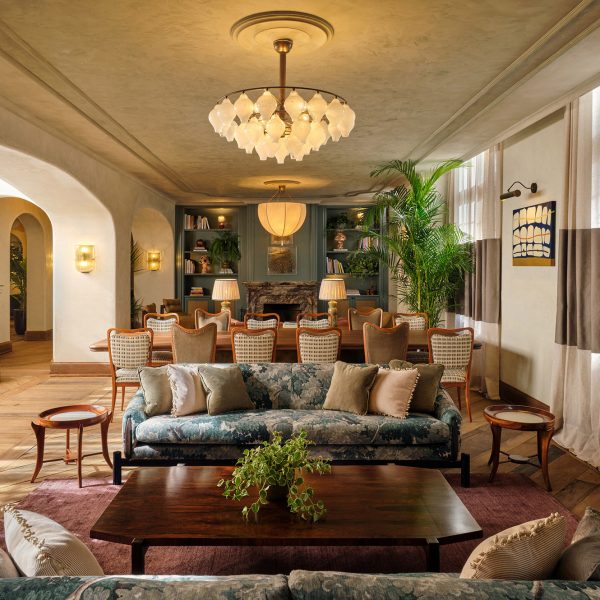Members’ club Soho House has opened its first location in South America, taking over a historic building in São Paulo and creating interiors influenced by Brazilian modernism.
Soho House São Paulo sits within the Cidade Matarazzo, a cluster of early 20th-century Italianate maternity ward buildings in the Bela Vista neighborhood that have been restored over the past two decades.
A block away from the Avenida Paulista – a major urban artery – and the Museum of Art of São Paulo Assis Chateaubriand, the hotel includes 32 guest rooms and restaurant, bar and club spaces for members.
“The House’s interiors are inspired by the city’s rich Portuguese heritage and Brazilian modernism,” said Soho House team.
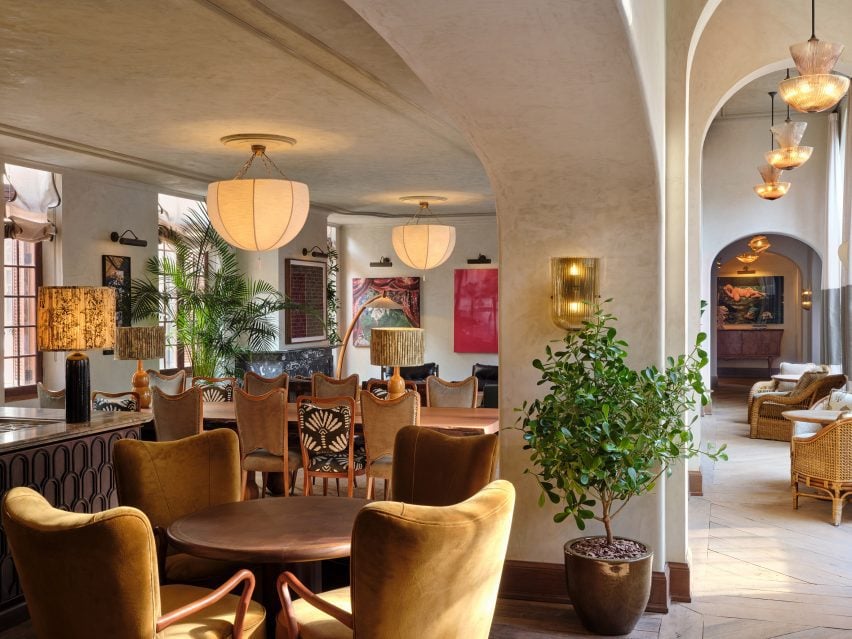
Soho House Design worked with local artisans to source Brazil-made furniture and decor for the hotel and club, which revolve around a central courtyard.
This verdant open-air terrace is furnished with rattan chairs, round tables, and green and white parasols for up to 68 members and guests to convene and dine outdoors.
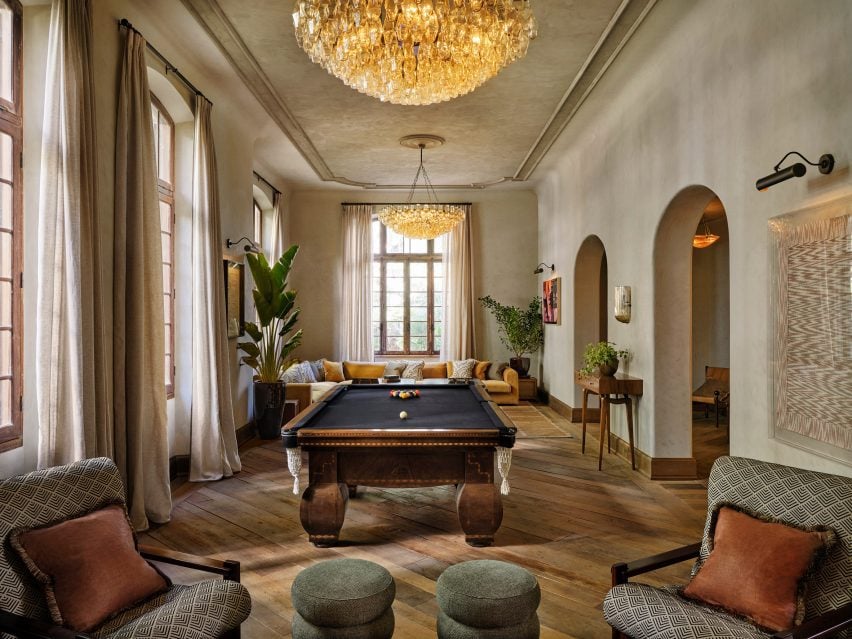
Large arched glass windows bring light into the ground-floor club spaces, where multiple lounge areas include a Sitting Room that can be used for work during the day and a Main Bar where DJs spin.
The Game Room has a navy-topped pool table and a large yellow sectional, while the Drawing Room is anchored by an ornate marble fireplace and features a secondary bar.
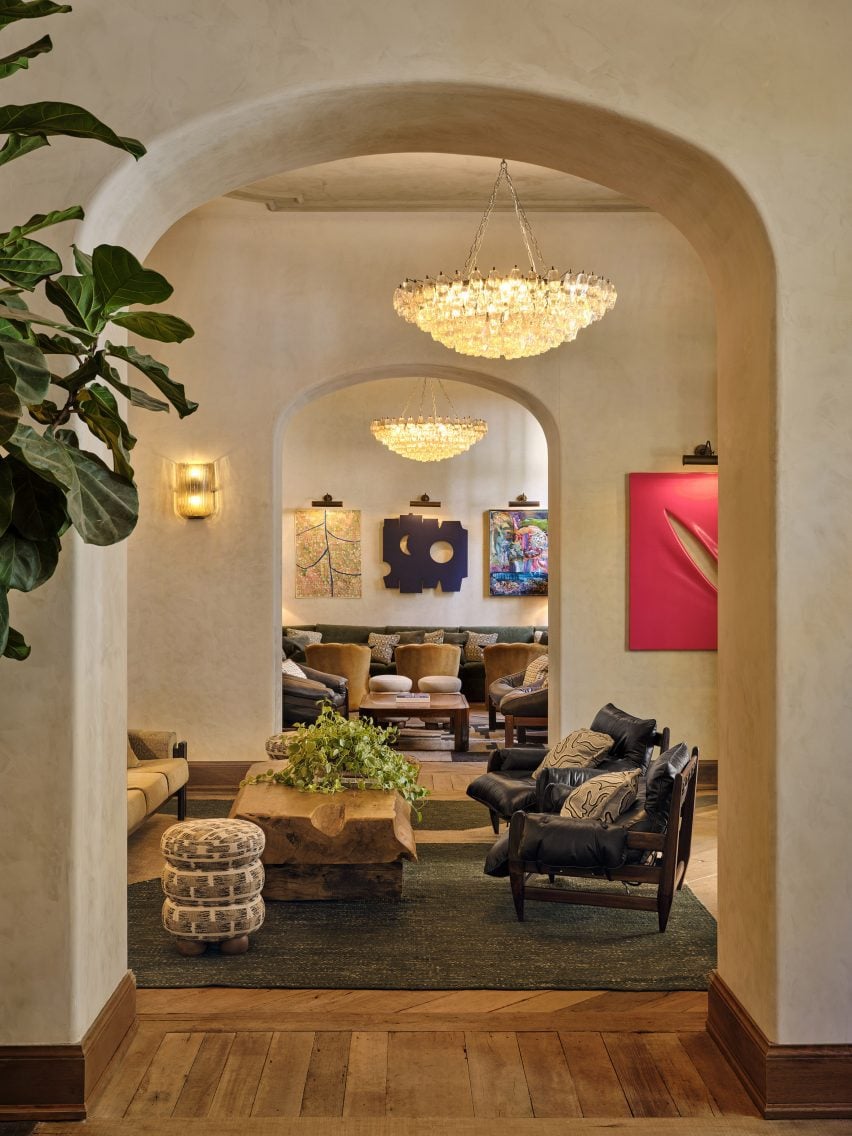
Soho House São Paulo also features two event spaces: the Condessa room and the Zambone room on the second floor, which includes a private bar and a video projector.
Artwork around the building forms a collection amassed by the Soho House team that includes the work of 60 artists born, based or trained in Brazil.
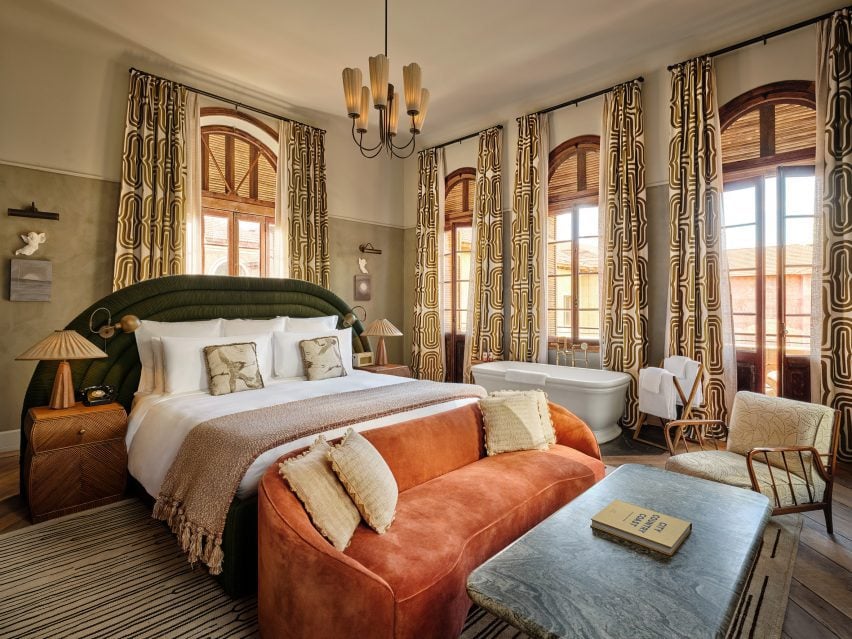
A surrealist mural in the main bar, titled Pernas, pra que te quero!, was created by local artist Marcelo Cipis.
Upstairs guest rooms vary in size, with the larger ones featuring freestanding baths and living areas, and some have a private terrace.
Occupying the upper level, the rooms are decorated with textured plaster walls, dark wooden furniture and bold patterned curtains that nod to Brazilian modernism.
“The lighting and furnishings in every bedroom have been sourced locally, including reclaimed wood floors and hand-painted tiles in the bathrooms,” said the team.
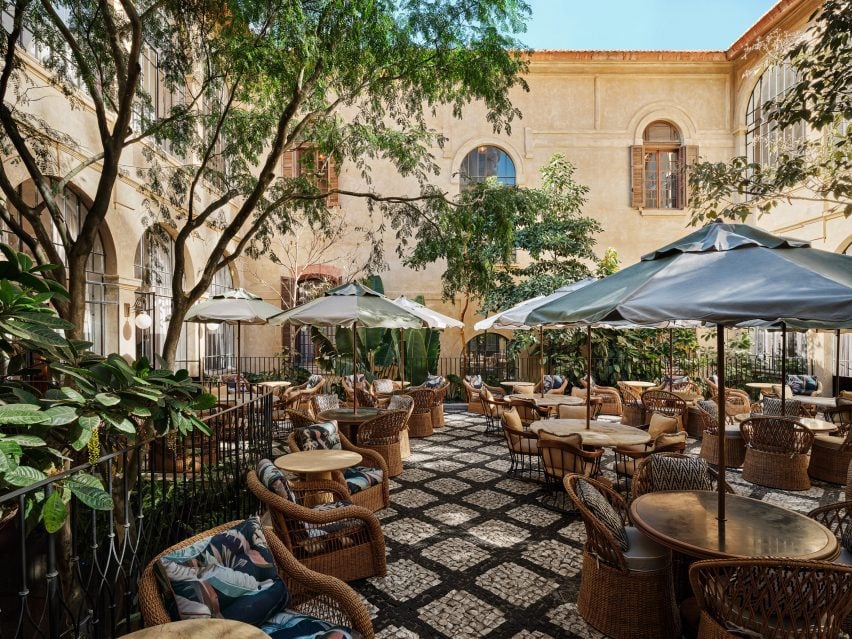
“At the same time, all fabrics and accessories have been produced in Brazil or handmade in São Paulo,” they added.
A second phase of development, due to be completed in 2025, will include the addition of a gym with multiple fitness and spa areas, and a rooftop pool bar surrounded by loungers for sunbathing.
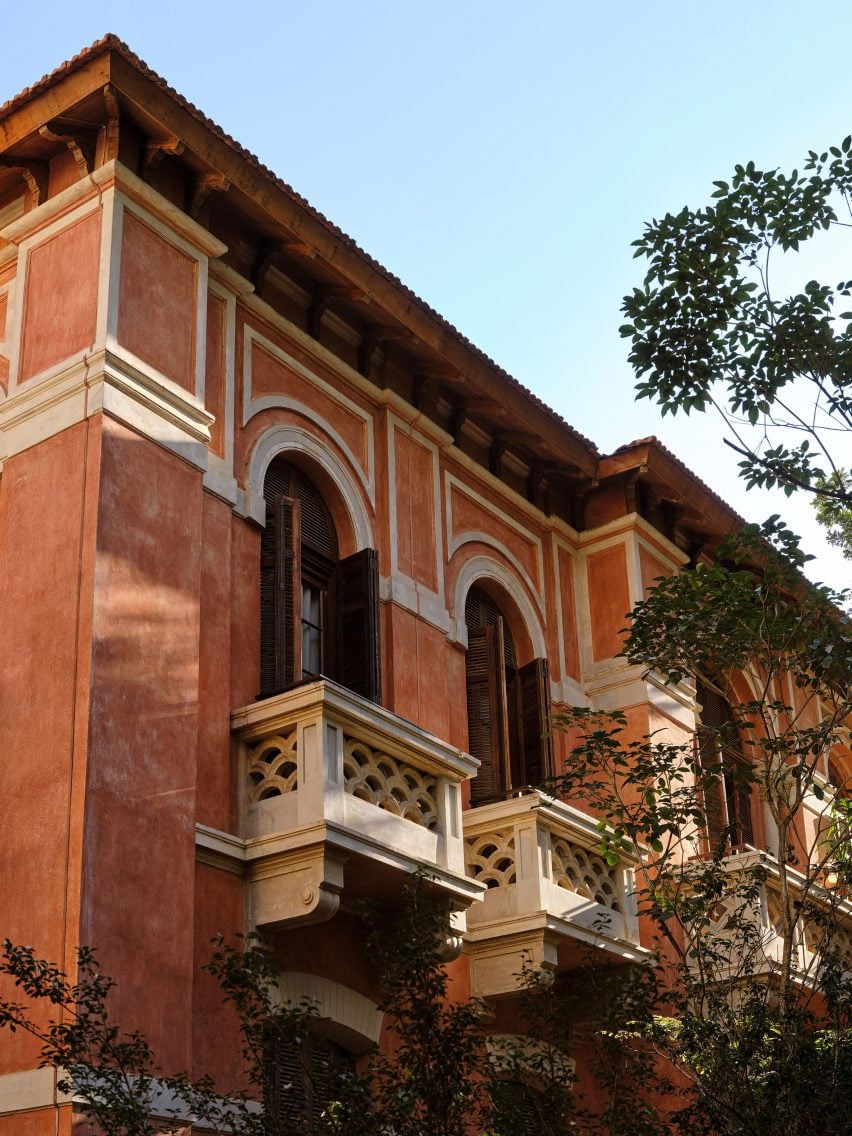
Soho House currently operates 42 locations worldwide, with recent openings in the Americas including Mexico City, Nashville, Austin and a third outpost in Los Angeles.
The group was founded in London by Nick Jones in 1995, and became known for its distinctive rustic and eclectic interior style that has since developed to echo contextual cues of each house location.
The photography is by Christopher Sturman.

